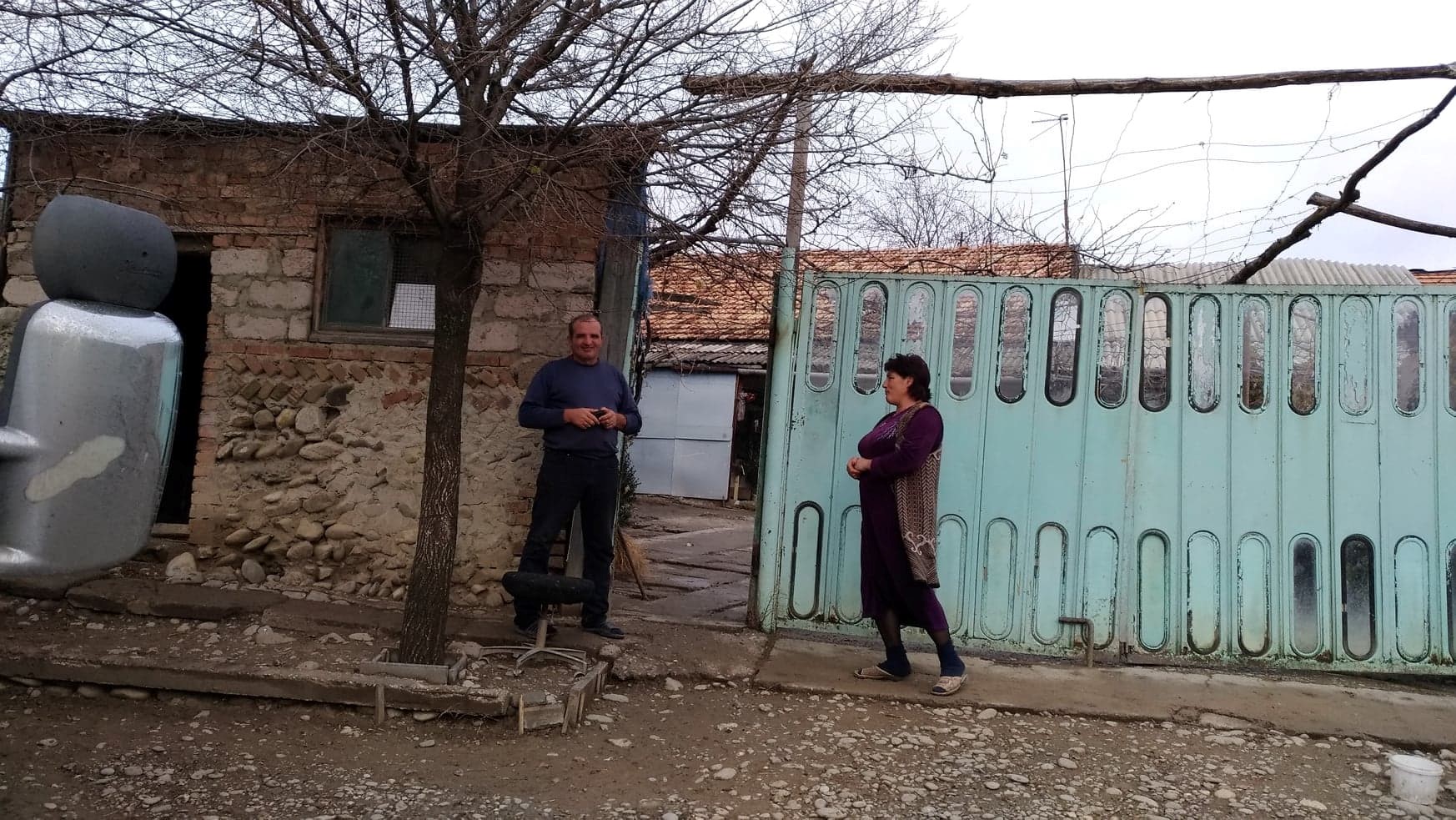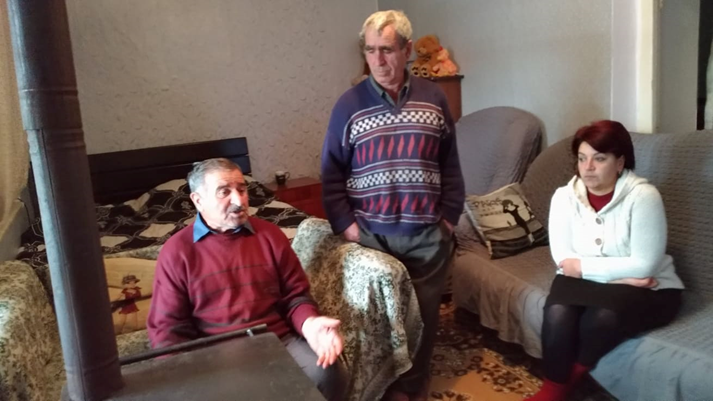
Village of Karapila
The village does not have a pharmacy and an outpatient clinic. If they need medical help, villagers have to travel about five kilometers to receive services. There is no grocery store in Karapila either. To buy primary consumer goods and products, Karapila residents go to the neighboring villages of Saribari and Zardiaantkari.
Local People
According to the locals, the village does not have a primary school. However, transportation provided by the state takes the pupils to Kodistskaro rural school. Like everywhere else, unemployment is a major problem in the village. There are 18 young people in the village, but none of them is currently employed. The village has not had a minibus, which would provide them with transportation even in Kaspi, for years.
Besides, Karapila doesn’t have outdoor lighting. The problem is exacerbated by the fact that the village borders the occupied Orchosani. According to the residents, in the dark, there were several cases when people were taken to the occupied territories. They think that in order to prevent illegal detentions and strengthen the sense of security among the population, it is necessary to install outdoor lighting.
Local People
How has life changed since the pandemic? We have been told that for years, the main issue in the village has been the problem of drinking and irrigation water. However, since the spread of the viral infection, the problem has become particularly acute. Drinking water is installed only in one district of the village, which is not enough. Locals also complain about the quality of drinking water and believe that a laboratory test is necessary. In addition, they have mentioned that restricting traffic has made it even more difficult to access medicines and essential products; That the restrictions declared due to state of emergency also affected families whose members had lost their jobs and had to return to the village due to unemployment.
* * *
The project "Supporting Human Rights Protection at Front Line" is implemented with the financial support of the European Endowment for Democracy (EED).
The attempt to adopt the Russian law and the rhetoric of the party's high-ranking officials against joining the European Union are a betrayal of the Constitution and the Georgian people.






